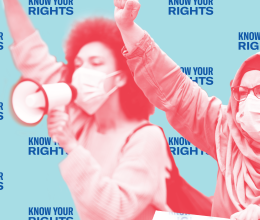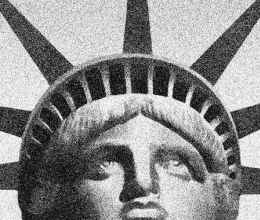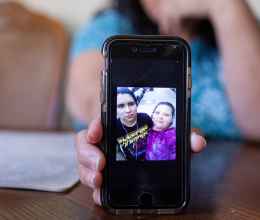
After a two-day trial, a federal judge has ordered that an ACLU of Southern California client can finally become a U.S. citizen after an 11-year battle for naturalization. U.S. District Court Judge Virginia Phillips ruled Tuesday that Tarek Hamdi, a devout Muslim of Egyptian descent, is eligible to naturalize, ending a long battle with the U.S. Citizenship and Immigration Service (UCIS) that first delayed deciding his application and then subjected it to discriminatory treatment.
“I am so thrilled that finally I will be able to take the oath of allegiance to this country that I was prepared to take long ago,” said Tarek Hamdi.
Litigation of the case revealed that the delays and discriminatory treatment Mr. Hamdi confronted in the naturalization process were the result of previously secret USCIS policies. These policies mandated that – regardless of whether he was eligible to naturalize by law – the agency could not approve his application. These policies also led the agency to construe his religious practice of zakat, or charitable giving, as a “national security concern.” These policies apply to any application for an immigration benefit, such as naturalization, green cards, and visas. They explain the discriminatory treatment and inordinate delays that Mr. Hamdi, like so many other Muslim immigrants, have faced in obtaining immigration benefits.
“Discrimination in the citizenship process was long ago abolished from our laws, but USCIS’s secret policies have led to widespread discrimination against Muslim immigrants in this country,” said ACLU-SC staff attorney Jennie Pasquarella. “The result in this case sends an important signal to the thousands other Muslim immigrants in America--who despite meeting all the requirements for citizenship, fear that religious discrimination and their charitable giving could negatively impact their immigration applications-- that the law still means what it says.”
The ACLU-SC filed suit on Hamdi’s behalf in June 2010, asking that the court finally review the matter of his eligibility to naturalize, after USCIS had lost, delayed and finally denied his application.
The agency claimed that Hamdi was “associated” with Benevolence International Foundation, an Islamic charity, solely on the basis of a lawful charitable donation he made to the organization in 2000. In 2002, the Treasury Depart designated the foundation as a financier of terrorism.
Mr. Hamdi was previously a class-member in an ACLU-SC lawsuit, Kolhatkar, et al. v. Holder, which challenged the lengthy delays in processing naturalization applications due to the FBI name check. That case settled in November 2009.
Hamdi currently lives in Corona, California and is a construction manager for Caltrop. He has resided in the United States for more than 30 years. He married his college sweetheart, a U.S. citizen, and has four daughters.






